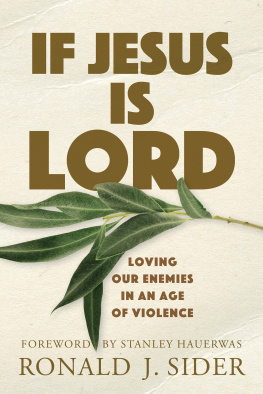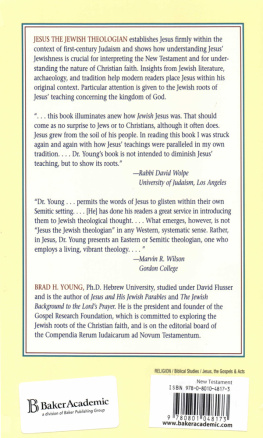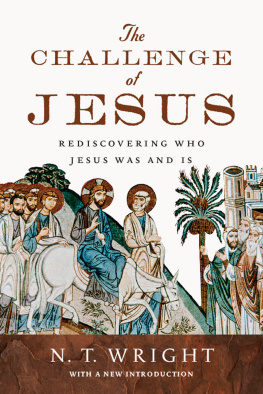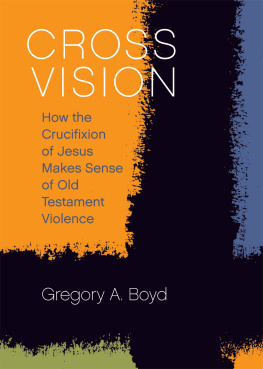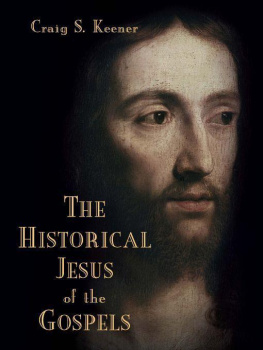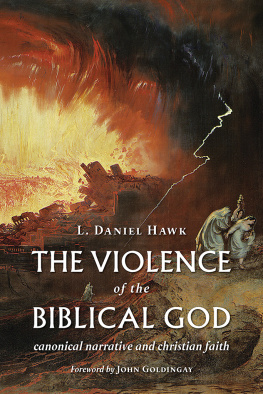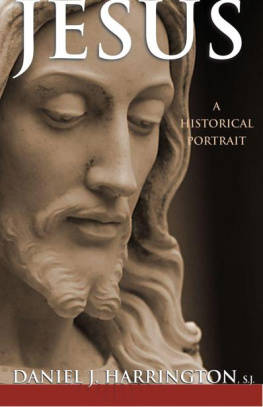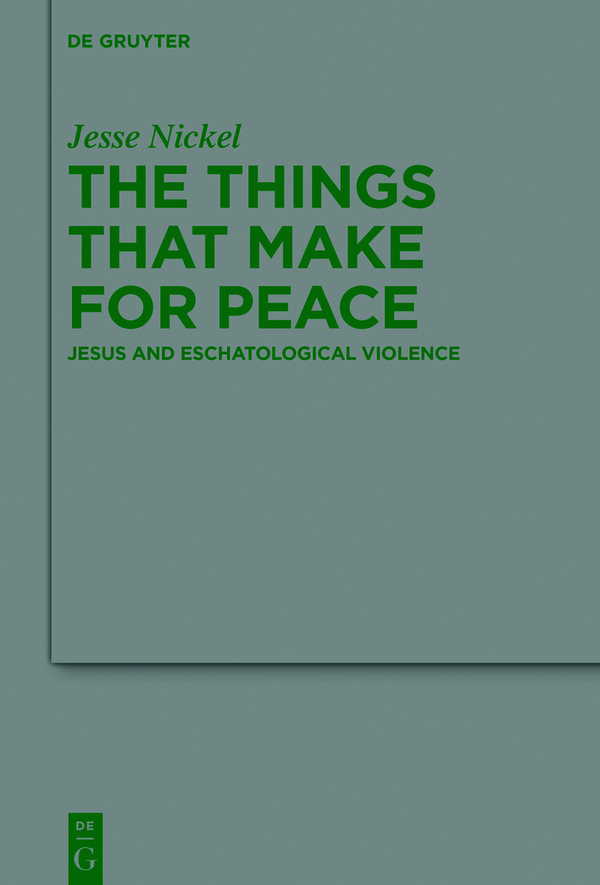Beihefte zur Zeitschrift fr die neutestamentliche Wissenschaft
Edited by
Matthias Konradt
Erich Grer
Richard B. Hays
Judith Lieu
Laura Nasrallah
Jens Schrter
Gregory Sterling
Carl Holladay
Hermann Lichtenberger
James D. G. Dunn
Michael Wolter
Volume
ISBN 9783110702415
e-ISBN (PDF) 9783110703771
e-ISBN (EPUB) 9783110703870
Bibliographic information published by the Deutsche Nationalbibliothek
The Deutsche Nationalbibliothek lists this publication in the Deutsche Nationalbibliografie; detailed bibliographic data are available on the Internet at http://dnb.dnb.de.
2021 Walter de Gruyter GmbH, Berlin/Boston
For Liana
Psalmen
Come, O children, listen to me; I will teach you the fear of the Lord . Which of you desires life, and covets many days to enjoy good? Keep your tongue from evil, and your lips from speaking deceit. Depart from evil, and do good; seek peace, and pursue it. Psalm 34:1114 Then justice will dwell in the wilderness, and righteousness abide in the fruitful field. The effect of righteousness will be peace, and the result of righteousness, quietness and trust forever. Isaiah 32:1617 Blessed are the peacemakers, for they will be called children of God. Matthew 5:9 |
Preface & Acknowledgements
This book consists of a revised version of my PhD thesis, completed at the University of St Andrews, Scotland, between September 2012 and June 2016, under the supervision of Professor N. T. Wright. After defending the thesis in October 2016, some minor revisions were made prior to its final completion in January 2017. Further revisions to prepare it for publication were undertaken after that point. However, none of this work has included consultation of any scholarship published since the end of 2016. I am keenly aware that several such sources merit my attention, for the ways they have contributed to the subject matter of this study. Unfortunately, however, work and family responsibilities have precluded my ability to consult and engage with them. The only more recent work referenced in what follows is my own article, Jesus and the Lstai: Competing Kingdom Visions, which was published in the 2018 issue of ExAuditu. My apologies to the authors of studies whose work I have overlooked; I hope that the opportunity for collegial dialogue and insightful engagement might not have been lost.
There are, of course, many people who have contributed to the completion of this work in a variety of different ways, and to each of them I owe a great deal of gratitude. This includes the two scholars who have had the most formative impact upon me, both in terms of my own thinking, as well as my identity as a biblical scholar and Christ follower. First, Tom Wright, who was a tireless, encouraging supervisor of my doctoral work. Tom generously and gently offered words of scholarly wisdom and insight, including the occasional need for me to get away from the stacks of books and articles and join him on the links. He continues to mentor me in what it looks like to combine academic excellence with faithful discipleship of Jesus. Second, Rikk Watts, who taught me that at its heart, biblical exegesis should be life-givingthis stuff matters!and embodied the difference this makes to teaching it. Rikks love of Jesus is overflowing and contagious.
I am also thankful to my fellow students and the faculty of St Marys College at the University of St Andrews, for creating such a vibrant research community. I am particularly grateful to Garrick Allen, Chris Brewer, Jen Gilbertson, Andrew Marin, Raymond Morehouse, and Steve Watts, for their friendship, support, and thoughtful engagement with my work.
Since moving back to Canada in the summer of 2016, I have been fortunate to work alongside a group of wonderful colleagues at Columbia Bible College. They have offered me patience and encouragement as I have grown into my role as part of the biblical studies faculty, and their support as I have sought to carve out bits of space to work towards the publication of this book. I am particularly grateful in this regard to Doug Berg, Gil Dueck, Ken Esau, Jerry Pauls, and Michael Szuk.
For careful reading, insightful critique, and helpful feedback on various parts of this work, I am thankful to Chris Keith, Justin Meggitt, and Elizabeth Shively. For support and guidance through the publication process, I am thankful to Alice Meroz, Sabina Dabrowski, and the rest of the team at de Gruyter. Huge thanks also to Andrea Allen, for providing such top-notch indexing service.
Many friendships over the years have also beenand continue to bevery meaningful to me; for conversation, challenge, laughter, and shared memories with such great people, I am thankful. I have also been privileged to share life together with some pretty incredible communities of people at Peace Mennonite Church, Cornerstone Church, and Level Ground Mennonite Church, and I am thankful for the many ways in which the steadfast love of God has been manifested to me through them. Thank you.
Throughout my life, I have been faithfully and lovingly supported by my family, and things were no different when it came to the lengthy process of researching and writing this book. This includes my mom, Sue, and dad, Dieter; my sister, Jenna, and brother-in-law, Keith; my parents-in-law, Laura and Gerry; and my brother- and sister-in-law, Aaron and Diedre. In particular, mom and dad, thanks for always being interested, asking such great questions, and being so unfailing in your expressions of love and encouragement. And to my kids, Annelise and James: you bring me so much joy, and I love you so mucheven if you never get around to reading this book!
Finally, last in these acknowledgements, but first in every other way: Lianawhere can I even begin? Through all the ups and downs of the past years, I have known your faithful, patient, tireless encouragement, and your selfless, loving support. I could not have done any of this without you. I hope that you know the heartfelt truth of those words, and in case you need reminding, Im dedicating this book to you in recognition of that fact.
Jesse Nickel |
Columbia Bible College, Abbotsford, BC |
5 August 2020 |
Chapter 1 Violence, Eschatology, and the Life and Ministry of Jesus
1.1 Introduction
Within the vast historical, literary, and theological scholarship of which Jesus of Nazareth has been the focal point, a subject of sustained interest has been the question of Jesuss relationship to violence. Scholars of different backgrounds and perspectives have explored the matter, utilising diverse methodologies. Many have been struck by the Gospels
As scholarship has come to understand better the sociopolitical context of first-century Palestinian Judaism, this has enabled a deeper appreciation of the ways that Jesuss perspective upon violence, demonstrated in word as well as deed, was both similar to and distinct from other perspectives prevalent among his contemporaries. This topic has been examined from a variety of different angles; however, one significant aspect of the discussion that remains underrepresented in scholarship concerns the place and role of


